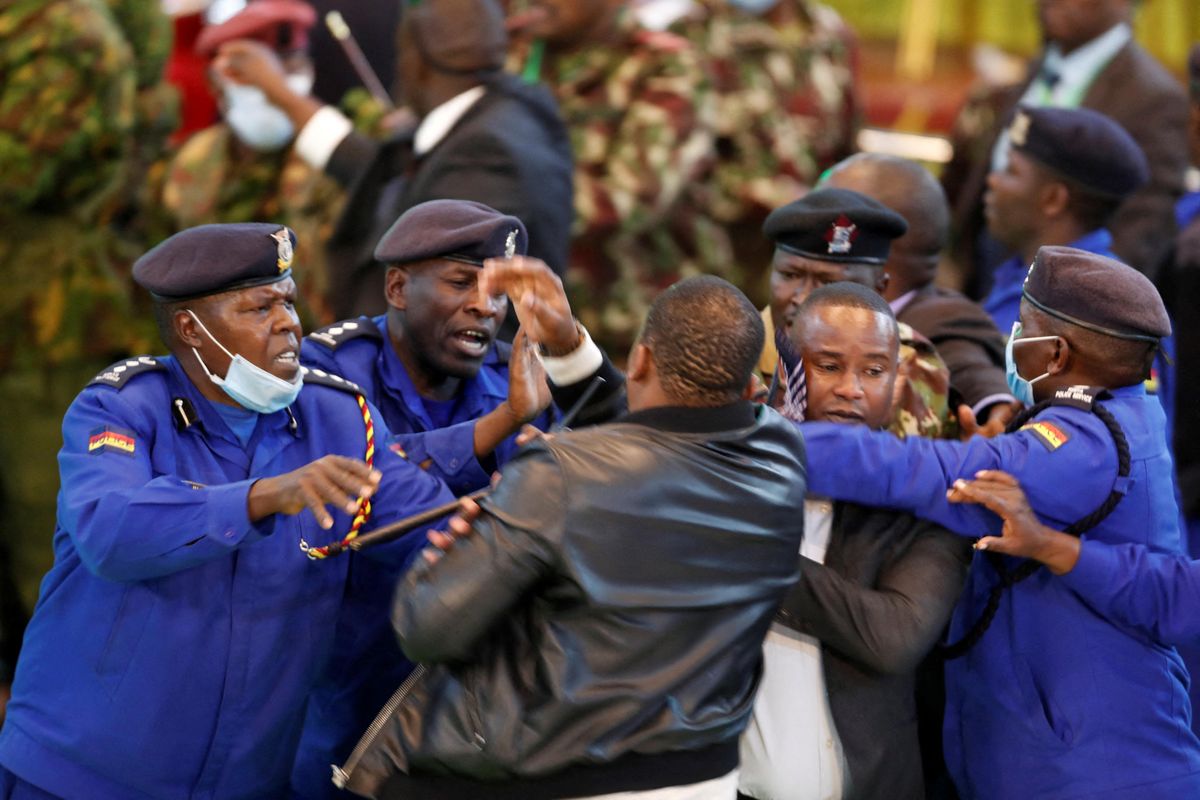Kenya's new president is … ?
Deputy President William Ruto won Kenya's presidential election with 50.5% of the vote, the electoral commission declared Monday. Still, the process was very messy: authorities initially delayed the announcement amid clashes at the national counting center and accusations of vote rigging from Ruto's rival Raila Odinga. What’s more, four out of the commission's seven members refused to endorse the result over vague fraud claims. So, what happens now? Odinga, who represents the country’s dynastic politics, might contest the result in court, as he did five years ago, when the Supreme Court found so many logistical errors in the presidential election that it forced a rerun. Also, in 2007 more than 1,200 Kenyans were killed following a similarly disputed vote. (Both Ruto and outgoing President Uhuru Kenyatta were then taken before the International Criminal Court for inciting violence, but charges against both were later dropped.) All eyes are now on the 77-year-old Odinga, in his fifth and presumably last run for the presidency. Will he risk more unrest and perhaps violence to win at all costs? Such uncertainty doesn't bode well for East Africa's most vibrant democracy. This election “started off as the most transparent and ends up in farce," tweeted political cartoonist Patrick Gathara.
Ukraine hits Wagner Group HQ
On August 8, a pro-Russian journalist working in the Ukrainian town of Popasna in Russian-held territory posted a series of images from his visit to the local headquarters of a Russian mercenary organization known as the Wagner Group. One of those images included a street sign that read Mironovskaya 12, the building’s address. Though the journalist later deleted that image, it appears the Ukrainian military had already seen it. On Sunday, Ukrainian officials claim its forces destroyed that building with the help of a HIMARS, a US-provided artillery rocket system capable of hitting a target precisely up to 43.5 miles away. Pro-Russian journalists have confirmed the hit, though reports of casualties remain sketchy. It’s another high-profile setback for the Wagner Group, believed to be closely linked to the Kremlin through one of Vladimir Putin’s most trusted advisers and to the GRU, the Russian military intelligence agency. Wagner has been active in Ukraine, Syria, Libya, and West and Central Africa, sometimes at the invitation of local governments. It has also been accused of war crimes and human rights violations.








